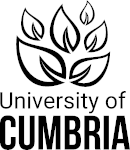
Barrow vision offers lessons to university sector on how it can drive regional growth
Cumbria's Vice Chancellor speaking at this week's Universities UK Annual Conference
As the University of Cumbria prepares to welcome the first students to its new multi-million-pound campus in Barrow-in-Furness, the role of the university in the town’s transformation is being highlighted today (Thurs 4 Sept) at the Universities UK 2025 Annual Conference.
This week Vice Chancellors are converging upon Exeter along with Government ministers, senior politicians, policymakers and research and skills leaders to discuss strategic issues affecting the higher education sector during a two-day annual conference organised by Universities UK (UUK).
Workshops, walks and other activities are taking place including a series of plenary sessions exploring emerging issues.
Cumbria’s Vice Chancellor Professor Julie Mennell has been invited to be a panel member at a plenary entitled ‘Shoulder to the wheel in the quest for growth’, which will examine how the higher education sector can play a more prominent and co-ordinated role in supporting national and economic growth. This is in the context of a challenging economic climate where universities are under increasing pressure to demonstrate their impact – particularly in areas such as skills development, productivity, and regional innovation.
Well-placed to discuss this issue, Professor Mennell is a member of the Enterprising Cumbria board setting the strategic economic growth plan for the county. She is also sponsor for the education, employment and skills workstream of and sits on the Barrow Delivery Board set up by Team Barrow, the partnership driving transformation of Barrow with £220m of Government investment.
Alongside Professor Mennell on the UUK plenary panel are the Rt Hon Peter Kyle MP, Secretary of State for Science, Innovation and Technology; Phil Smith CBE, chair of Skills England; Prof Sir Ian Chapman, chief executive of UK Research and Innovation (UKRI); and Prof Jane Robinson, Pro-Vice Chancellor (Engagement and Place) at Newcastle University.
Professor Mennell (pictured) said: “Today gives us a real opportunity on the national sector stage to discuss how our university is deeply involved in the Government’s ambitious plans to regenerate Barrow-in-Furness. It’s a challenging programme, a one that needs to succeed for the nation as well as for our region, and as a university of and for Cumbria I’m proud that we are an active part of the Team Barrow delivery board.
“We are used to and continue to work closely with BAE Systems to help meet its high demand for skills that includes co-creating new programmes. We are also a university that trains nurses and other healthcare professionals, teachers for schools, as well as the artists and environmental scientists to name but a few that enhance our natural and cultural landscapes – all of which play a part in our regional growth across Barrow and beyond.
“By working with our partners, including further and other higher education institutions, we can and will continue to do more to help transform lives and livelihoods now and for future generations.”
The Universities UK conference comes just days after the University of Cumbria celebrated the arrival of the first 58 students to the Pears Cumbria School of Medicine based at its Fusehill Street campus in Carlisle.
Along with the generous philanthropic support of the Pears Foundation, the graduate-entry medical school has been established thanks to the unique and strategic collaboration between University of Cumbria, a leader in place-based learning and its long-standing history of educating and training healthcare professionals, and Imperial College London, which has world-class research and medical education expertise.
Cumbria faces health inequalities, with staffing levels across the care pathway significantly below national averages. Life expectancy varies by almost 20 years between the poorest and wealthiest wards in the county and 68% of adults are overweight or obese.
The medical school has been designed to address the health inequalities Cumbria faces through a bespoke curriculum, focused on prevention and the delivery of high-quality care. And, as it develops, the School will use large data models and AI to prepare students for practice using digital technology.
Other place-based regional growth plans forming part of its Towards 2030 strategy sees Cumbria’s university creating a new £78m landmark campus in the centre of Carlisle and the launch this year of the University of Cumbria International College.
ENDS

